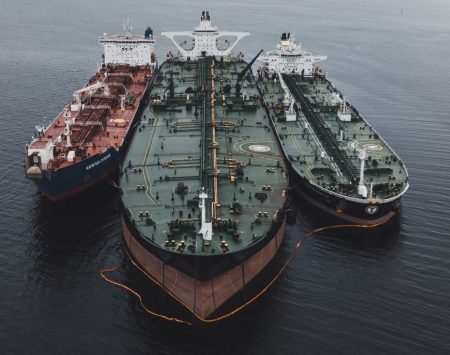On Friday, Nikkei reported that three Japanese insurers will cease offering insurance services for any war-damage to Russian vessels in Russian waters, according to unnamed sources.
According to the report, reinsurance companies prompted the change by refusing to accept risks related to the Russian military action in Ukraine which was launched in February by Moscow.
Tokio Marine & Nichido Fire Insurance, Sompo Japan Insurance and Mitsui Sumitomo Insurance have begun apprising ship-owners of the cessation of coverage for war-damage anywhere in Russian territorial waters, even far from the conflict zone in Ukraine. The changes will go into effect on the first of January.
Currently, ships sailing through Russian or Ukrainian waters are required to acquire extra war-damage insurance. Providers must receive advance notification so they may follow-up on terms for payouts and premiums. As of January first, ships will no longer be able to acquire such coverage from the three named insurers.
Nikkei noted that Japanese imports from Russia’s Sakhalin-2 project and elsewhere in Russia, of liquified natural gas (LNG), could be impacted by this change, as shippers will not be able to acquire coverage.
The G7 nations agreed in September to impose a price cap on Russian seaborne crude, in retaliation for Moscow’s military actions in Ukraine. The G7 countries, in conjunction with the European Union, set the cap at $60 per barrel in December.
Under the terms of the cap, marine insurance, brokerage, and other services required for shipping may not be proffered if the price of the cargo exceeds the price cap.
Moscow has promised to deny any sales to any nation which attempts to impose the capped price upon them, as they have sought to redirect shipments to Asia, where nations are unwilling to take part in the Western sanctions regimes.
Tokyo, suffering under high energy prices itself, has supported the price cap, referring to it as an effective way to cut Moscow’s energy revenues, without impacting global supply.
However, Masahiro Okafuji, the head of the Itochu company, which has invested in the Sakhalin-1 project via the Sodeco consortium, has said Tokyo cannot survive without importing oil and gas from Russia.
Companies in Japan which were taking part in the Sakhalin-1 and Sakhalin-2 projects in Russia have announced they will maintain their participation in the projects despite Western sanctions placed on Russia.
Russian President Vladimir Putin had ordered management of the projects to be taken from US oil giant Exxon Mobil and given to a domestic Russian entity, and for the companies with interest in the project to transfer their interest into the new entity if they wished to remain invested in the projects.

